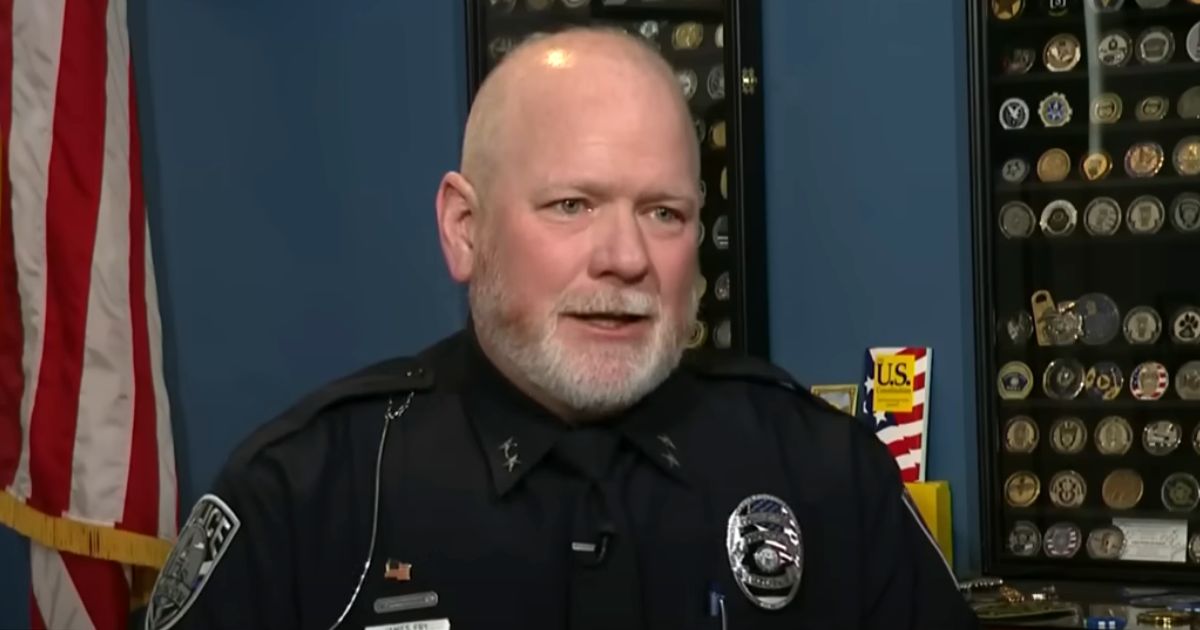James Fry has children. Daughters. He also is living under a microscope these days as the chief of police of Moscow, Idaho, where almost a month ago, four University of Idaho students were killed.
And although in public, he keeps the professional mask in place, in a new interview, it slipped just a bit.
Police are still hunting for a suspect and a motive in the Nov. 13 stabbing deaths of four University of Idaho students — Kaylee Goncalves, 21; Madison Mogen, 21; Ethan Chapin 20; and Xana Kernodle, 20 — at an off-campus residence.
Fry said his officers are asking questions and sifting information while coming under criticism because police in the 24,000-person community have not yet made an arrest.
“This case is not going cold. We have tips coming in. We have investigators out every day interviewing people. We’re still reviewing evidence. We’re still looking at all aspects of this,” Fry told Fox News during an interview on Tuesday.
“And I said early on that no stone will go unturned. And I mean that. We are going to continue. This case is not going cold,” he said.
Fox News reported Tuesday that the department had received more than 2,600 emailed tips, more than 2,700 phone tips and 1,000 digital media submissions.
During his interview, Fry offered a glimpse at the toll the case is taking.
“I’m a dad with daughters. And that’s tough. … We’re human,” Fry said, trying to blink back his emotions as his voice became choked.
“We’re human. We don’t go to these and just turn it off. It affects us. But we have a job to do. And we’re going to continue to do that job and we’re going to continue to push forward,” he said.
[firefly_embed]
[/firefly_embed]
Fry said interviewing alone can be time-consuming, according to Fox News.
“We always have the option of reinterviewing. We’ve actually reinterviewed people two or three times because we’ll get tips, or we’ll get information that we need to verify again, and sometimes we need to ask the questions just a little bit different to ensure that we’re getting the proper information to continue on with this investigation. So, that happens regularly in all investigations,” he said.
On Wednesday, Fry and other officers removed items that belonged to the students living there.
“It’s time for us to get those things back that really mean something to those families and hopefully help with some of their healing,” the chief said, according to Fox News.
Some experts said hope for a quick arrest is wishful thinking, according to NBC News.
“This is a case that only the most experienced crime techs can solve and answer. It’s going to take a long, long time,” said Jennifer Coffindaffer, who spent 25 years as an FBI agent.
She and others said processing evidence that includes vast numbers of DNA samples from whoever partied in the house where the students lived could take weeks or months.
“You can’t assume each drop of blood is from the same person,” said David Carter, a professor of criminal justice at Michigan State University and a former Kansas City, Missouri, police officer.
“You have to sample them all and analyze them all to see if they belong to victims or a suspect. It’s very time intensive. They’re trying to find hairs, footprints from shoes, fingerprints — anything like that,” he said.
Howard Ryan, a former commander of a crime scene unit in the New Jersey State Police, said “murder investigations are not a spectator event.”
“People are influenced by TV shows. They believe that these events and processing and work happens at a much more rapid pace and results are obtained much quicker than they really are,” he said.
This article appeared originally on The Western Journal.

























 Continue with Google
Continue with Google